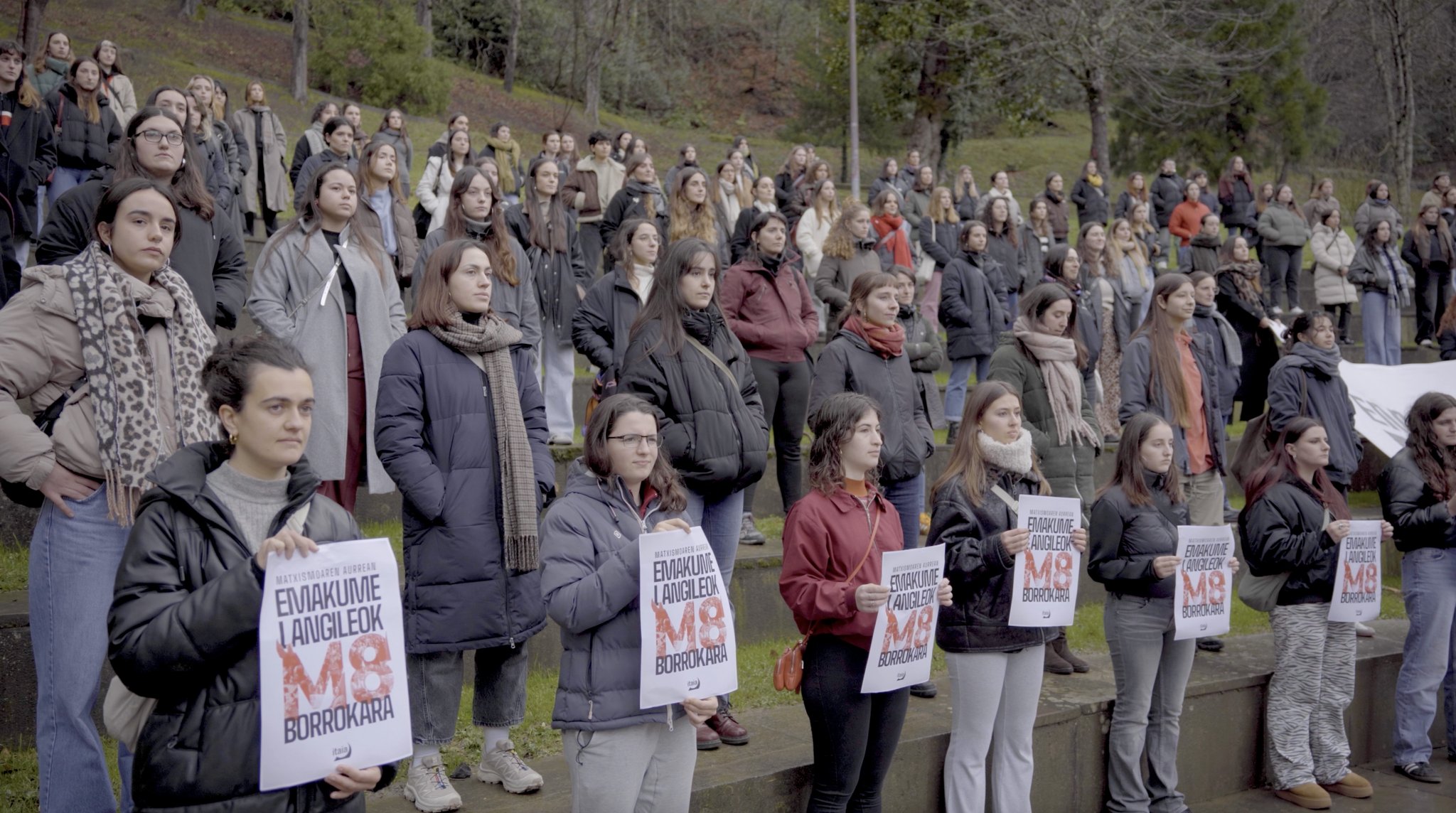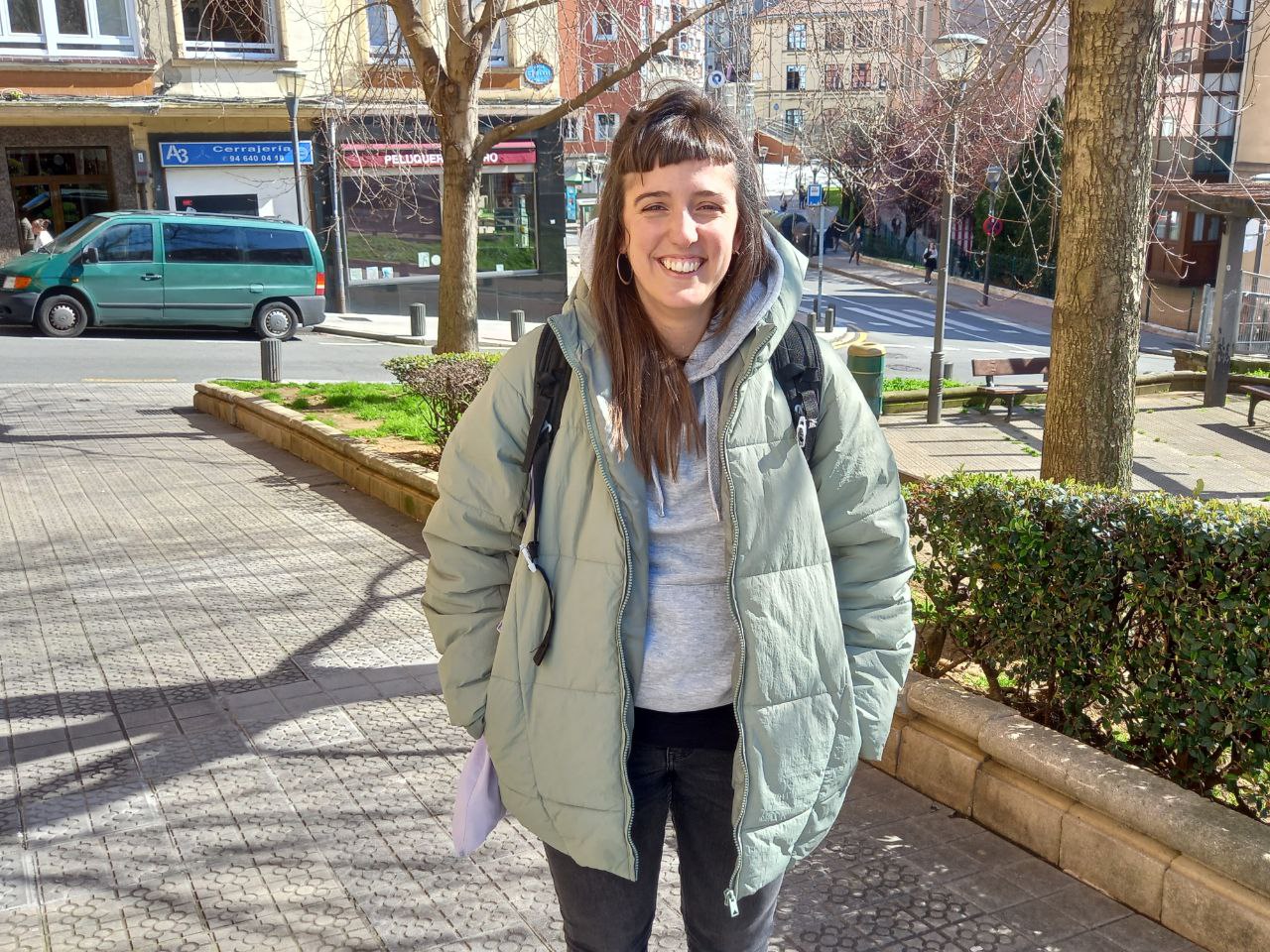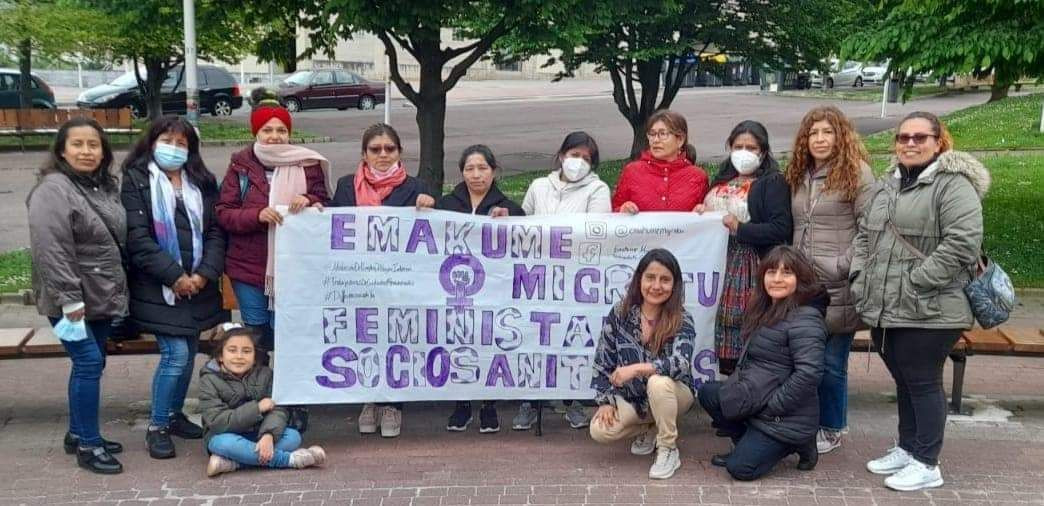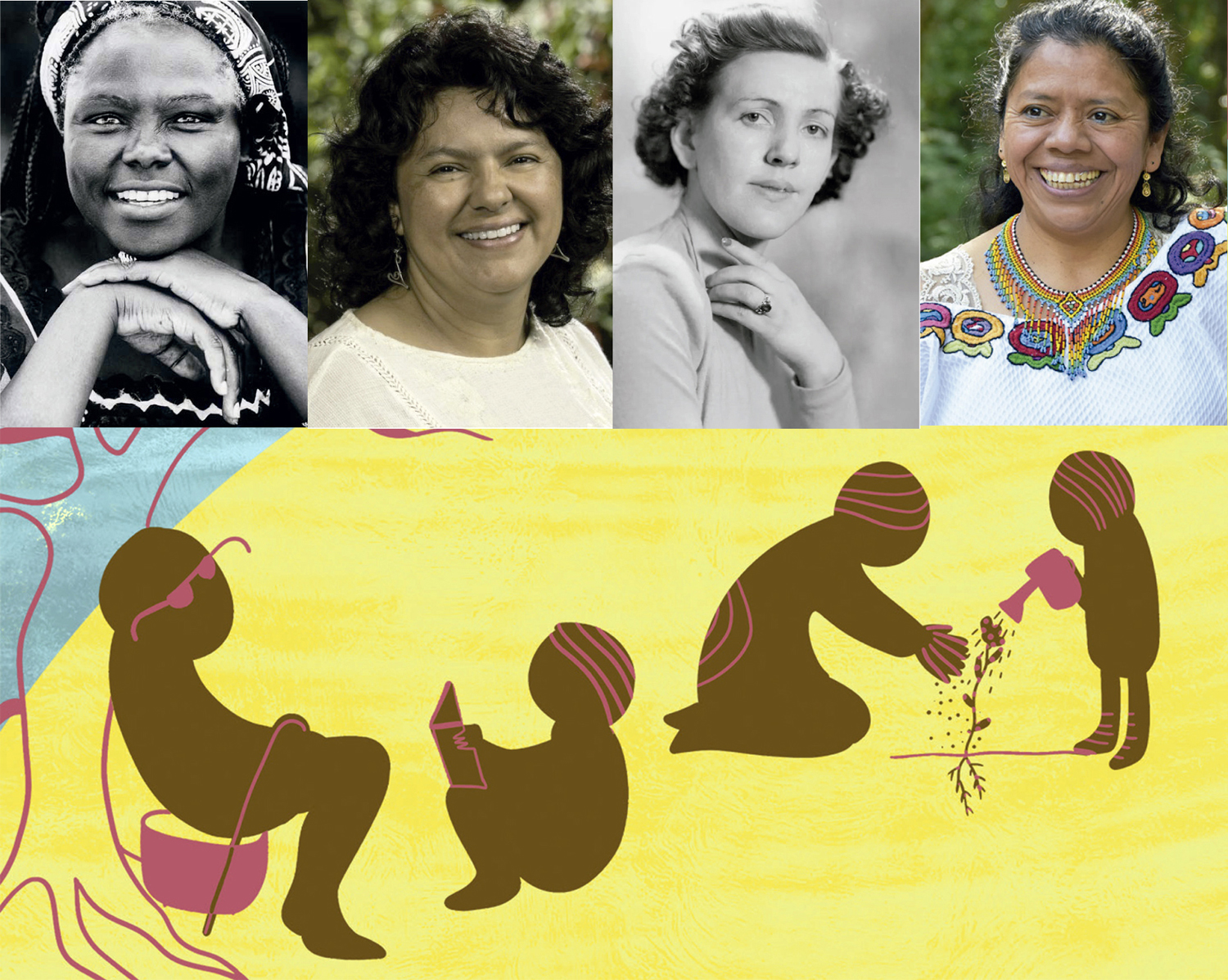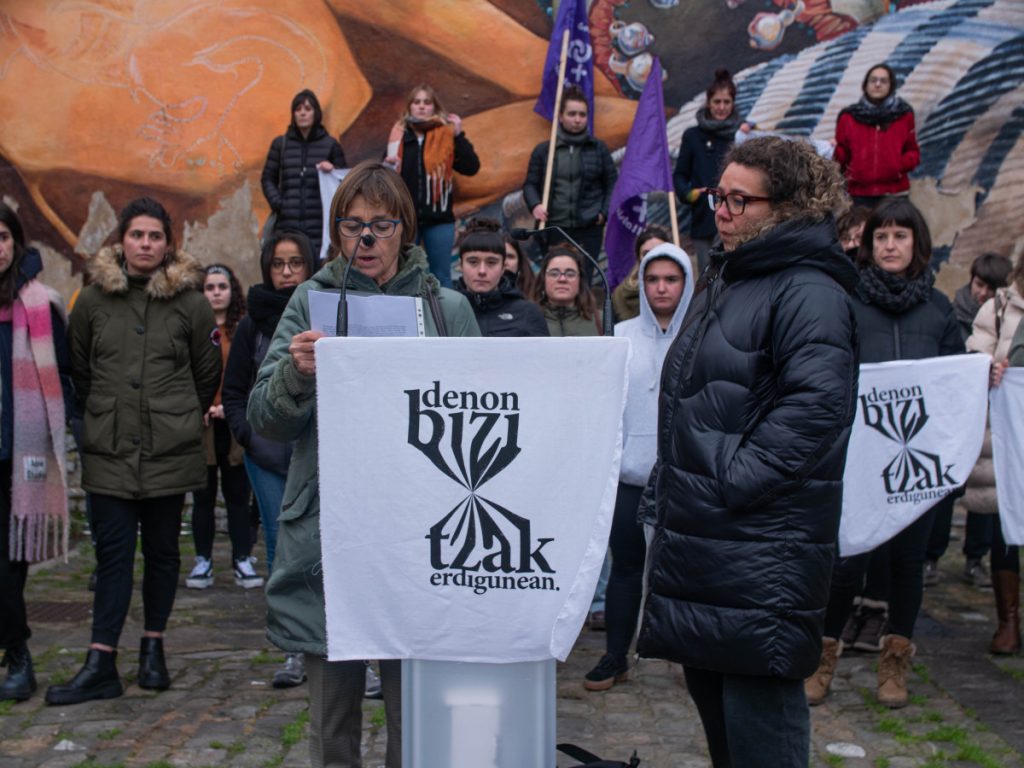March 8 begins the process of change of the care system from feminism
- Everybody's lives in the middle. The feminist movement in Euskal Herria has just begun a long-term mobilization under the motto of changing what has revolutionized care. The dynamic was presented at a press conference held on February 1 in Vitoria-Gasteiz. We have talked to Ainhoa Olaso Sopelana and explained the objectives set: to stop being a business, to make surveillance a "social responsibility" and to guarantee as a "collective right for all".
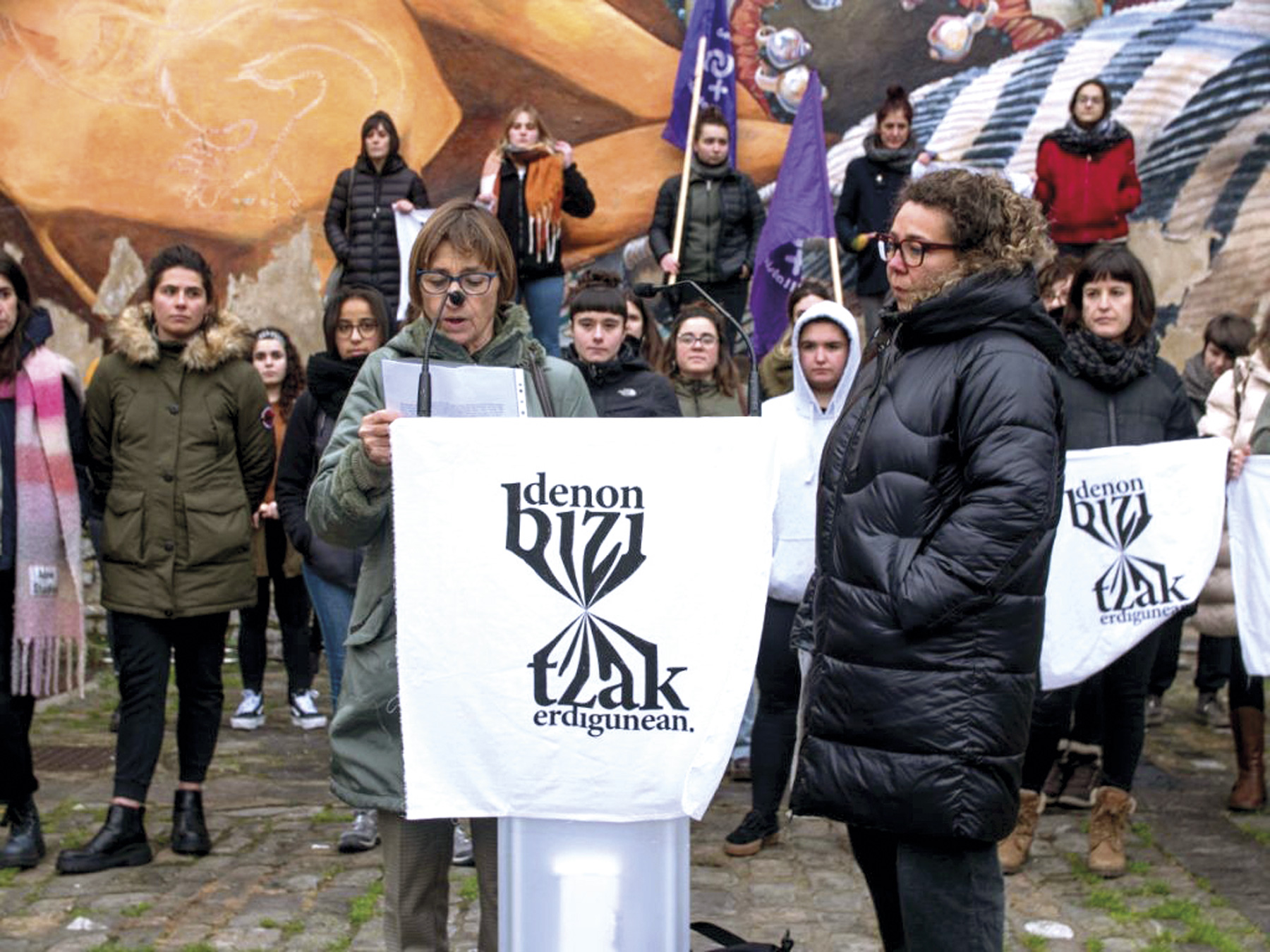
March 8 of this year has come to stay: "Lives of all in the center." Care to change what's been dumped. The feminist movement in Euskal Herria has just presented the process of radical change of the current care system, within this dynamic it has sought to place International Women's Day. "We need to combine short-term struggles with long-term processes. When we say that transforming the care regime is about transforming the entire system, we don't talk about debalde," says feminist activist Ainhoa Olaso Sopela.
Placing the objective in a social organization that guarantees care as a collective right for everyone, every day, people to people, assembly to assembly and struggle. That is, the collective mobilization of the feminist movement. They want March 8 to be the showcase of that force: "The issue of local care will not be worked in the same way, but in different corners of the Basque Country we will all come out with the same breath, following the process, and that will be important for the future." Since the press conference recently held in Vitoria-Gasteiz, all feminist members of the Basque Country have been invited to join the process. They also want partnerships with those struggling to improve working conditions in the care sector and, in general, for public services.
Adding up reflections and mobilizations, feminist militants will therefore have as rich a year as the 2023 charged. But they do not start from scratch, and they have refined the political proposal that internalizes the refrain. The conference "Towards a public, community feminist care system", held in Vitoria-Gasteiz on 19 and 20 February last year, constituted an important milestone and the resulting report is a key document to better understand the feminist proposal on the care system. To begin with, as I said, the goal is to make care a "collective right". This right would not be exclusive to situations of dependency, but would constitute a guarantee to "offer and receive care throughout life, with freedom and commitment".
Public-Community surveillance system
They prepare the proposal for the "community public care system". Moving away from business logic, they have added a "community" component to the public model that would ensure "universal and equitable" care accessible to all. "When we talk about community, we talk more about ideology and our way of life. In this system, which makes us increasingly individualistic, we are losing the community approach and we have to rethink our relationships of care. Our cities and towns are also not designed to carry out community life, and our desire is to change them," says Olaso. Besides being a collective right, they also read care as a "collective responsibility". Olaso has defined the conditions for this: "de-commodification" and "unfamiliarity"; "responsibility" on the part of men; the involvement of the community and the strengthening of relations networks; changes in public policies... conscious of the positive side of care, "responsibility for the common", stress the need to redefine and reorganize, starting with the daily life of our homes, relations, streets and peoples.
"This system makes us increasingly individualistic; as the community perspective loses, we have to rethink our care relationships"
Ainhoa Olaso Sopela
The feminist movement says that collective consensus will have to be reached on how the relationship between the community and the public will be, because this is a "new model of governance". They consider that the role of public institutions is "essential" because changes in the law are needed: "They will promote specific policies to guarantee the right to surveillance in specific situations and, at the same time, will be a boost to change the other policies towards that direction", as we can read in the Vitoria report. Asked what kind of relationship they would have with the institutions, Olaso says that it is not an easy challenge: "It is clear to us that some of the ups and downs we are doing necessarily need institutional changes. We know that it is not easy because many things come into play (interests between parties, interests of parties with private companies, elections…), so there will be no change overnight." For this reason, the approach is still unclear:
"We have no defined relationship with the institutions, but we come to ask for structural changes, and if the ones that maintain the structures are the institutions, then we will have to specify what that relationship will be".
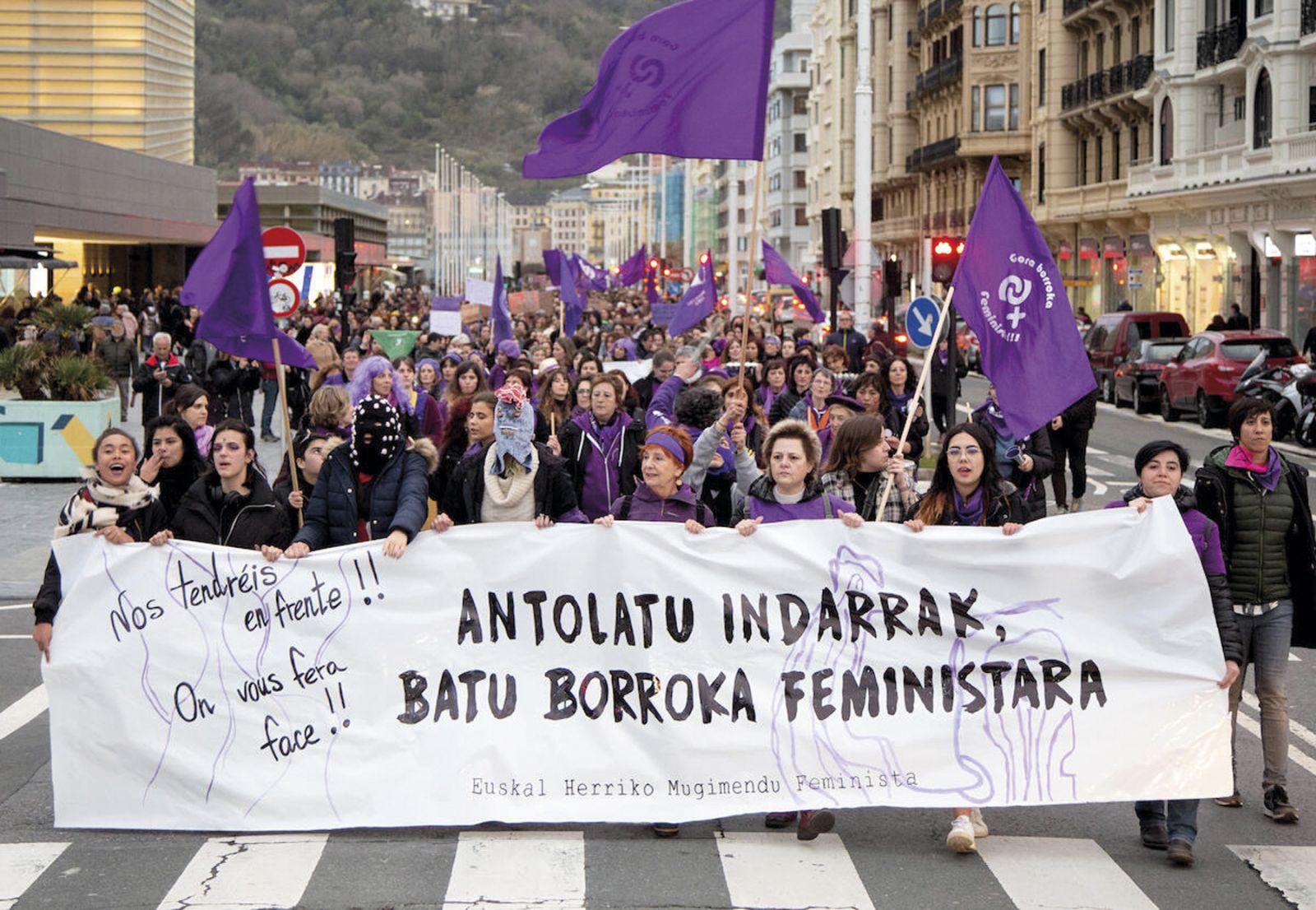
You know that the surveillance system revolution requires a lot of educational and educational work, because that's all cultural. "The material and cultural changes necessary for the social recognition that care deserves must be encouraged, and here the role of education can be important," says Olaso. The compass "emancipating care model" aims to disseminate the "culture of mutual care that recognizes vulnerability and interdependence". When describing this model, we can list the following elements: "Care is not a dichotomous relationship, we all give and receive care in different moments of life"; it must be placed outside the heteronormativity; we must take into account the health and possibilities of multiple bodies; and we must recognize the diversity of lives, therefore, of care relationships.
Urgent: dignity for caregivers
Given that this systemic and cultural change is not directed from day to day, the short-term priority is clear: dignification of care. "This struggle is a process of dignifying the lives of all and that is why we identify as urgent demands the law of aliens or the modification of the care regime," explains Olaso. Respect for the rights of household workers, the regularization of all caregivers, the dignified withdrawal of female pensioners and attention to the benefits of the residences are some of the demands that must be urgently addressed.
Being a revolutionary proposal and aware of the attitude of the hegemonic power, they defined in the presentation of the process that "this crisis is not solved with superficial solutions. We know that now anyone is talking about the importance of care. But we do not want false promises that silence us. The solution will not be to further digitalization, nor to speak of a ‘community’ view in the abstract, where feminization and familiarization with care is reproduced. They have become aware of our discourse to empty content and we want to comply with concrete proposals and measures". On 8 March will be the date of receipt of this content.
Martxoaren 8a hurbiltzen ari zaigu, eta urtero bezala, instituzioek haien diskurtsoak berdintasun politika eta feminismoz josten dituzte, eta enpresek borroka egun hau “emazteen egunera” murrizten dute, emakumeei bideratutako merkatu estereotipatu oso bati bidea... [+]
Martxoak 8aren izaera iraultzailea berreskuratzeko deia egin du Itaia emakumeen antolakunde sozialistak. Irene Ruiz Itaiako kideak azaldu digunez, “oldarraldi erreakzionarioaren eta matxismoaren aurrean proposamen iraultzailea hauspotu eta kontzientzia sozialista... [+]
Martxoaren 8an kalera ateratzera deitu ditu herritarrak mugimendu feministak, "desberdinkeriek bere horretan" dirautelako. Zapalkuntza mekanismo berriak agertu direla salatu dute, eta feminismoa "ezkerreko borroken erdigunera" eramateko beharra aldarrikatu.
The elegant old woman crossed over our husband's arm. Known from sight, I saw that I was a little wrong, the strokes of age. A real lady eibarresa: a pearl necklace, which with her hair carved and proud, being Friday, knew she was in the morning in the hairdresser. This is a very... [+]
In Euskal Herria, we are talking about the care model. We continue to denounce privatization by claiming the need for a public system. We are building alliances to eradicate the racist system. We are questioning models of governance and demanding other models. We have the... [+]
I've sung a version of Zea Mays' famous song for my own colco. March has gone and I have named him, although I know he has little original. The month of April has come, and I promise, really, that I did not want to talk about this. March purple is an overload for you. Others,... [+]
Although we still do not analyse in depth the collective impact of the pandemic, it is no exaggeration to say that it has left us the demands we have made “our”. One of them is that we must focus care once and for all.
The issue of care is increasingly central in Euskal... [+]











